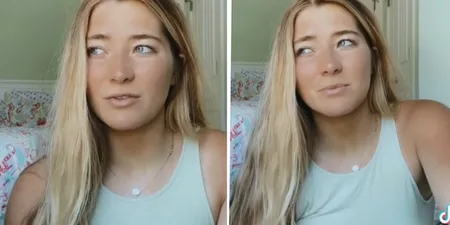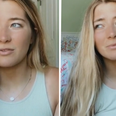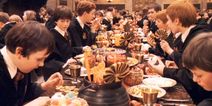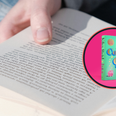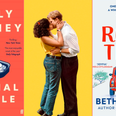Now that the warmer weather is here, we’ve been keeping an eye out for those can’t-miss summer reads.
Enter Expectation by Anna Hope, a novel exploring the friendship of three women – Hannah, Cate and Lissa – as they move from the hedonism and hope of their university days, through the wandering ambition of their twenties, to the turbulence of their early thirties.

Photo taken by Laura Hynde
Which is when their respective realities have fallen short of their expectations; marriages break down, careers fail and motherhood is pursued to great personal pain.
And while their friendship goes through its ups and downs, withstands distance and differences, and even wavers under jealousy and betrayals of trust – it is, ultimately, always there.

Expectation is available to purchase now – and you can do so here.
You can check out the opening of the book below.
London Fields
2004
It is Saturday, which is market day. It is late spring, or early summer. It is mid-May, and the dog roses are in bloom in the tangled garden at the front of the house. It is still early, or early for the weekend – not yet nine o’clock, but Hannah and Cate are up already. They do not speak much to each other as they take turns at the kettle, making toast and tea. The sun slants into the room, lighting the shelves with the haphazard pans, the recipe books, the badly painted walls. When they moved in here two years ago they vowed to repaint the dreadful salmon colour of the kitchen, but they never got around to it. Now they like it. Like everything in this shabby, friendly house, it feels warm.
Upstairs, Lissa sleeps. She rarely rises before noon on the weekends. She has a job in a local pub and often goes out after work – a party at a flat in Dalston, one of the dives off Kingsland Road, or further afield, in the artists’ studios of Hackney Wick.
They finish their toast and leave Lissa to sleep on, taking their faded canvas shopping bags from the rack on the back of the door and going out into the bright morning. They turn left and then right into Broadway Market, where the stalls are just getting set up. This is their favourite time – before the crowds arrive. They buy almond croissants from the baker at the top of the road. They buy strong Cheddar and a goat’s cheese covered with ash. They buy good tomatoes and bread. They buy a newspaper from the huge pile outside the Turkish off- licence. They buy two bottles of wine for later. (Rioja. Always Rioja. They know nothing about wine but they know they like Rioja.) They amble further down the road to the other stalls, looking at knick-knacks and second-hand clothes. Outside the pubs there are people, in the manner of London markets, already clutching pints at nine o’clock.
Back in the house they lay out the food on the table in the kitchen, make a heroic pot of coffee, put on some music and open the window out on to the park, where the grass is filling with small clusters of people. Every so often one of those people will look up towards the house. They know what the person is thinking – how do you get to live in a house like that? How do you get to live in a three-storey Victorian townhouse on the edge of the best park in London? Luck is how. A friend of a friend of Lissa’s offered her a room, and then, during the same year, two more rooms came up, and now they live in it together; the three of them. In all but deed the house is theirs. There is an agent somewhere in the far reaches of Stamford Hill, but they have a strong suspicion he does not know what is happening to the area, as their rent has remained stable for the last two years. They have a pact not to ask for any- thing, not to complain about the peeling lino or the stained carpets. These things do not matter, not when a house is so loved.
Sometime around eleven Lissa wakes and wanders down- stairs. She drinks a pint of water and holds her head, then takes her coffee to the steps outside and rolls a cigarette and enjoys the morning sun, which is just starting to warm the lowest of the stone steps.
When coffee has been drunk and cigarettes smoked and morning has become afternoon, they take plates and food and blankets out into the park, where they lie in the dappled shade of their favourite tree. They eat their picnic slowly. Hannah and Cate take turns to read the paper. Lissa shades her eyes with the arts pages and groans. A little later on they open the wine and drink it, and it is easy to drink. The afternoon deep- ens. The light grows viscous. The chatter in the park increases.
This is their life in 2004, in London Fields. They work hard. They go to the theatre. They go to galleries. They go to the gigs of friends’ bands. They eat Vietnamese food in the restaurants on Mare Street and on Kingsland Road. They go to openings on Vyner Street on Thursdays, and they visit all the galleries and they drink the free beer and wine. They remember not to use plastic bags when they go to the corner shop, although some- times they forget. They cycle everywhere, everywhere, all the time. They rarely wear helmets. They watch films at the Rio in Dalston, and then go to Turkish restaurants and eat pide and drink Turkish beer and eat those pickles that make your saliva flow. They go to Columbia Road flower market and buy flowers in the very early morning on Sundays. (Sometimes, if Lissa is coming home early from a party, she buys cheap flowers for the whole house – armfuls of gladioli and irises. Sometimes, because she is beautiful, she is given them for free.)
They go to the city farm on Hackney Road with hangovers, and they eat fried breakfasts in amongst the families and the screaming children, and they swear never to go there again on a Sunday morning until they have children of their own.
Sometimes on Sundays they walk; out along the Regent’s Canal to Victoria Park, and beyond to the old Greenway, to Three Mills Island, savouring the sideways slice of London that the canal offers up.
They are interested in the history of the East End. They buy books on psycho-geography from the bookshop at the bottom of the road. They try to read Iain Sinclair and fail at the first chapter but read other, more accessible books instead, about the successive waves of immigration that have characterized this part of the city: the Huguenots, the Jews, the Bengalis. They are aware that they too are part of a tide of immigration. If they are honest, they would like to halt this particular tide – they fear encroachment by those who resemble themselves.
They worry. They worry about climate change – about the rate of the melt of the permafrost in Siberia. They worry about the kids who live in the high-rises, right behind the deli where they buy their coffee and their tabbouleh. They worry about the life chances of these kids. They worry about their own relative privilege. They worry about knife crime and gun crime, then they read pieces which suggest the violence is only ever gang on gang and they feel relieved, then they feel guilty that they feel relieved. They worry about the tide of gentrification that is creeping up from the City of London and lapping at the edges of their park. Sometimes they feel they should worry more about these things, but at this moment in their lives they are happy, and so they do not.
They do not worry about nuclear war, or interest rates, or their fertility, or the welfare state, or ageing parents, or student debt.
They are twenty-nine years old. None of them has children. In any other generation in the history of humankind this fact would be remarkable. It is hardly remarked upon at all.
They are aware that this park – London Fields – this grass on which they lie, has always been common land, a place for people to pasture their cows and sheep. This fact pleases them; they believe it goes some way to explaining the pull of this small, patchy patch of green they like to feel they own. They feel like they own it because they do; it belongs to everyone.
They would like to pause time – just here, just now, in this park, this gorgeous afternoon light. They would like the house prices to remain affordable. They would like to smoke cigar- ettes and drink wine as though they are still young and they don’t make any difference. They would like to burrow down, here, in the beauty of this warm May afternoon. They live in the best house on the best park in the best part of the best city on the planet. Much of their lives is still before them. They have made mistakes, but they are not fatal. They are no longer young, but they do not feel old. Life is still malleable and full of potential. The openings to the roads not taken have not yet sealed up.
They still have time to become who they are going to be.
A good book can do just about anything; from taking you on a wild and fantastical adventure to making you feel like an all-knowing super sleuth (if you figure out the killer twist).
Every week at #Bookmarked, we will be taking you through some of our all-time favourite books – as well as the newest novels hitting shelves in Ireland.
Topics:
BookmarkedRELATED ARTICLES
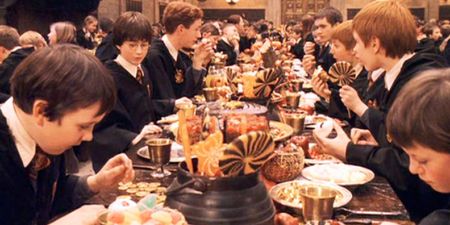
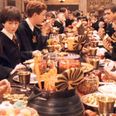
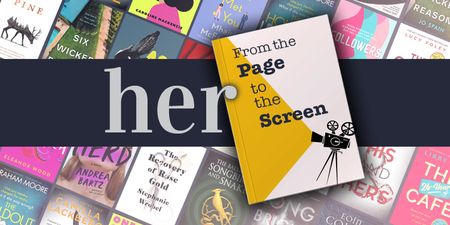



MORE FROM HER
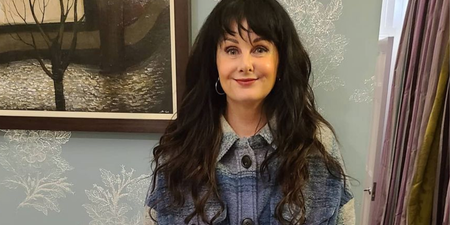

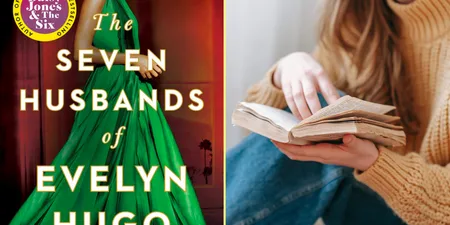
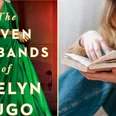


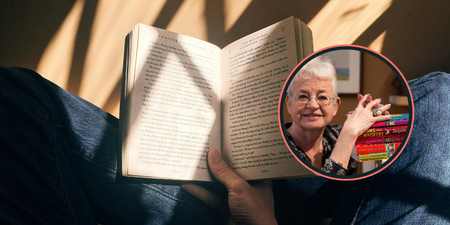
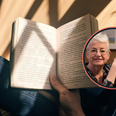


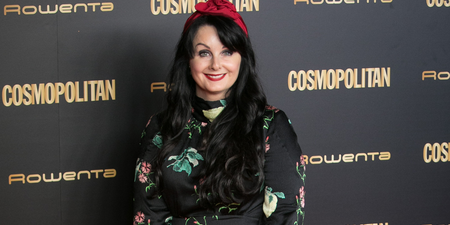



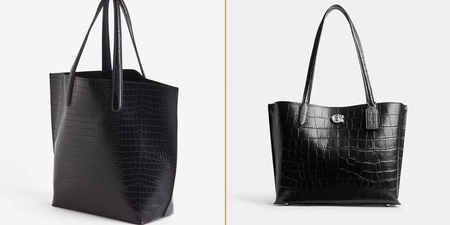

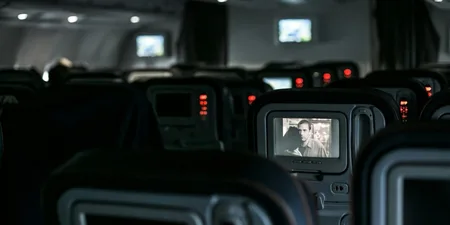







MORE FROM HER






